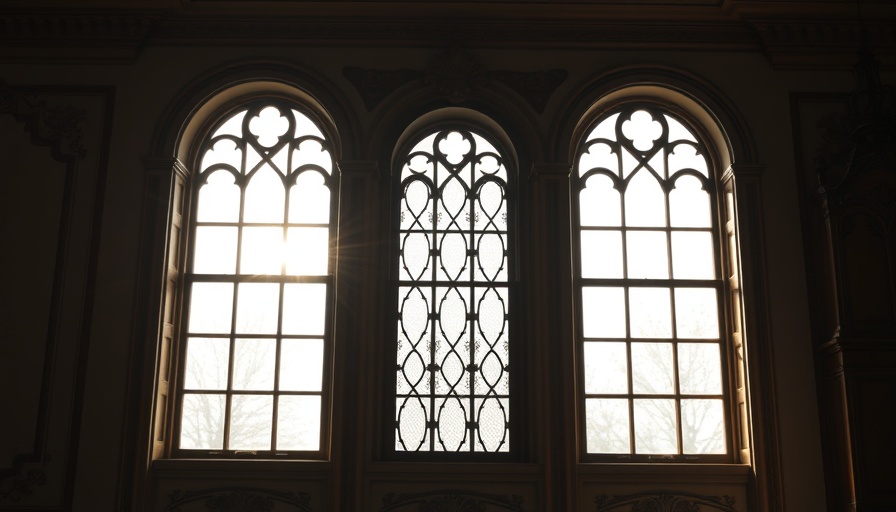
Victorian Windows: The Charm of History in Modern Homes
Victorian windows have re-emerged as a favorite feature in contemporary home design, admired for their blend of historical character and modern elegance. From Boston, MA, to San Francisco, CA, and even New Orleans, LA, these windows serve not just as functional openings but as distinctive elements that elevate the overall aesthetic of modern architecture.
What Defines a Victorian Window?
At the heart of their charm, Victorian windows are characterized by their large, vertical panes typically arranged in a 2-over-2 style, adorned with intricate mouldings and sash components that echo the 19th century. Jennifer Heron Brock, a principal architect, observes that these windows possess a stylish combination of expansive glass panes and decorative detail that can harmonize beautifully with contemporary designs.
Integrating Old and New: A Stylish Blend
The integration of Victorian windows into modern homes showcases the beauty of blending old-world charm with current styling. Drew Pierce, president of Seacoast Modular Homes, notes that when carefully designed, these windows can create dramatic visual impact, merging historical allure with contemporary finesse. Modular homes, in particular, offer flexibility in design, making them a perfect canvas for such architectural elements.
The Role of Proportions: Achieving Design Harmony
For a successful integration, matching the proportions between Victorian and modern windows is crucial. Architect Gray Houghland emphasizes that Victorian architecture's emphasis on vertical height should guide designs to ensure a coherent look. By aligning the height-to-width ratio, homeowners can create a balanced and visually appealing unity throughout their spaces.
Energy Efficiency and Aesthetic Appeal: A New Era of Design
As homeowners digest the classic aesthetics of Victorian windows, energy efficiency remains a concern. Doug Smith of Beechwood Tiny Homes reveals that it's possible to achieve both elegance and insulation. Many modern manufacturers provide energy-efficient windows that feature decorative glass layers—frosted, leaded, or stained—as part of a double or triple-pane setup. This innovation ensures that homeowners enjoy the vintage look without compromising thermal performance.
Framing the Details: Keeping It Simple
To spotlight the design of ornamental windows, simplicity in framing is paramount. Doug Smith suggests that keeping window frames clean and minimal allows the intricate decorative glass to shine as the focal point. This approach enhances the overall aesthetic without overwhelming other design elements in the home.
The Advantage of Restoration: Authenticity Matters
Original Victorian windows bring a level of authenticity and durability that many contemporary designs simply can't match. Neil Mozer of Mozer Works highlights the longevity of old-growth wood used in these windows, stating they can last centuries. Often hand-blown glass lends a unique wavy texture, allowing for a character that modern reproductions cannot replicate. These advantages make restoration a compelling option for homeowners looking to maintain historical integrity while enjoying the charm of Victorian architecture.
The Future of Home Design: A Blend of Inspiration and Functionality
The practice of mixing Victorian windows in modern homes opens the door to new design paradigms. As housing trends evolve, the blending of historical elements with contemporary conveniences is expected to shape future architectural conversations. This fusion not only celebrates a bygone era but also responds to today's homeowners’ desires for unique, character-rich living spaces.
Take Action in Your Home Search
As you explore houses for sale or consider new construction homes, think about how incorporating Victorian-style windows might enhance your space. Whether you're browsing MLS listings or hunting for real estate through platforms like Zillow or Redfin, envision the elegant transformation these architectural features can bring to modern living. From maintaining original details to blending them with sleek designs, the possibilities are endless. Start researching and discovering how Victorian windows can add both beauty and value to your property today!
 Add Row
Add Row  Add
Add 




Write A Comment